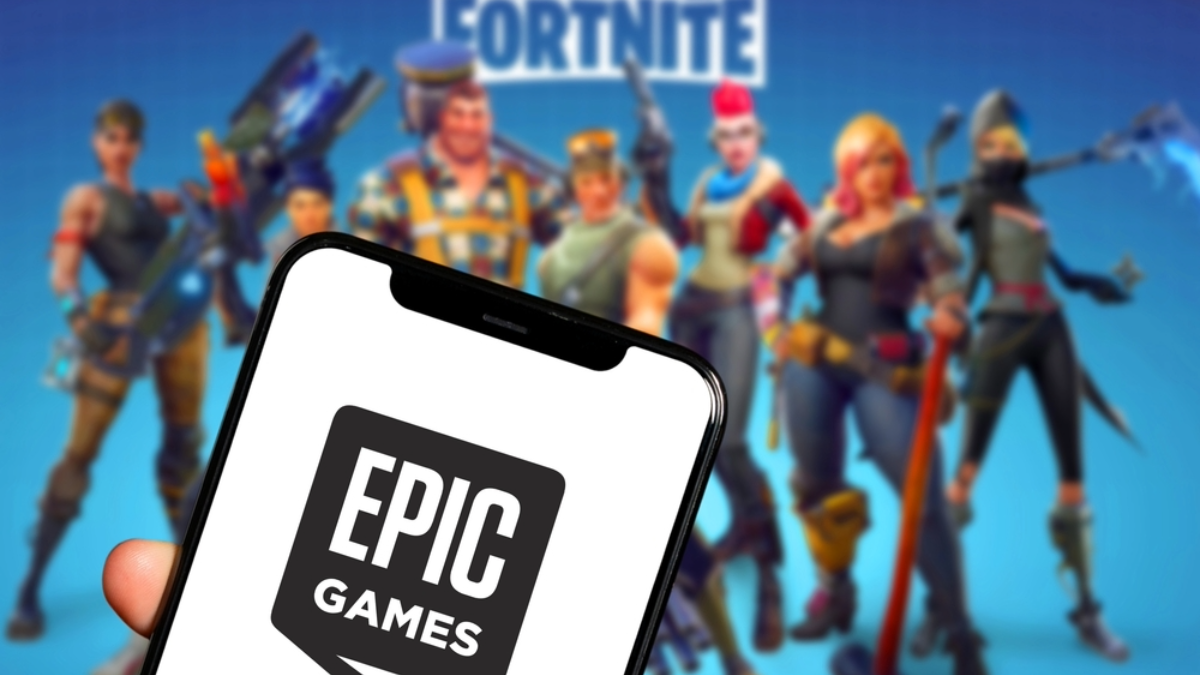Epic's Win Against Google: Reason for Optimism, But Uncertainty Remains
Daniel Hanley / Dec 15, 2023More than three years after the North Carolina developer of Fortnite, Epic Games, initiated its blockbuster antitrust lawsuit against Google, this week a jury of nine ordinary Californian citizens marked 11 Xs on a document and declared that Google engaged in illegal monopolization. This decision is stunning. Besides the fact that most antitrust lawsuits avoid juries altogether and are instead decided solely by a judge, this decision marks Google’s first loss in an antitrust action. It is now clear that even the seemingly invulnerable technology darling can be wounded – in its home state nonetheless.
Epic’s lawsuit centered around Google’s implementation of a practice called “tying,” in which a company requires using one product with another entirely separate product. In some cases, tying can be benign. This is particularly true for non-dominant firms. Consider, for instance, purchasing a car equipped with four tires. Here, however, Google leveraged its monopoly control over the Android smartphone operating system to require application developers like Epic Games to publish their applications on Google’s Play Store and use Google’s payment system (known as Google Play Billing) to process financial transactions for consumer purchases on the application, such as the purchase of in-game currency. Epic claimed that Google’s practices make the company an “unavoidable middleman” and that Google’s payment processing service imposes an arbitrary and onerous 15 percent “tax” on developers. Epic positioned its argument in noble terms, claiming its lawsuit does nothing more than force Google to “live up to [the company’s] promise of open competition, providing Android users and developers with competing app stores that offer more innovation, significantly lower prices, and a choice of payment processors.”
Since the beginning of antitrust law in the late 19th century, tying agreements, like those implemented by Google, have historically been a condemned practice. The reasoning seems evident – a corporation can leverage its dominance in one market to obtain, retain, or expand a dominant position in another market. In the words of the Supreme Court, “[T]he essence of illegality in tying arrangements is the wielding of monopolistic leverage; a seller exploits his dominant position in one market to expand his empire into the next.” This kind of harm is precisely what Epic argued Google had done to it; and a jury agreed.
Google somewhat made it easy for the jury to reach such a result. Unlike Epic’s similar case against Apple – which Epic mostly lost but is currently being petitioned on appeal to the Supreme Court – in this lawsuit, the jury had plenty of evidence to review concerning Google’s intent. As Epic’s CEO Tim Sweeney told CNN, “Google executives wrote things down.” In one notable piece of evidence, a Google executive bragged that she got an app developer to stop their plans to develop a rival application store by engaging in bribery-like conduct to get the company to stop developing the competing service – a practice other evidence showed Google repeatedly engaged in, calling its program “Project Hug.” It also didn’t help Google that the company was caught destroying evidence relevant to the trial. Especially for one juror, such conduct provided enough details to show that what Google was doing was not fair competition on the merits, but instead an example of the giant corporation using its power to unfairly squash a dependent firm to retain and expand its monopoly.
So, what can be inferred from this jury verdict? For one, a unanimous victory against a tech giant like Google indicates that ordinary citizens cannot only understand the proclaimed complexities of antitrust litigation but can also identify unfair conduct when they see it. When Congress enacted the Sherman Act in 1890, among many complementary goals, it sought to enable the public to restrain the overwhelming power of corporations like John Rockefeller’s Standard Oil from rigging the economy in their favor. Congress desired the ability to shape the economy to be in the hands of the public, not unaccountable corporate oligarchs. As one senator stated during the legislative debates, the Sherman Act was meant to “give a remedy to all the people[.]” When Congress strengthened the ability of private citizens to initiate antitrust litigation in 1914, it made this point even more apparent. One congressman stated that the new law would “open the door of justice to every man, whenever he may be injured by those who violate the antitrust laws[.]” The jurors here live up to Congress’s expectations of allowing a private party like Epic to hold a dominant corporation like Google accountable for their lawbreaking.
Epic’s victory could also incentivize other aggrieved parties to initiate their own lawsuits. In part, what is so shocking about Epic obtaining a favorable verdict is that antitrust cases are much more difficult for private companies to win. Generally, private litigants have to show a specific kind of legal injury, have a specific kind of legal standing, and be a specific kind of party in the chain of harm caused by the alleged violator even to have a chance for a court to rule on their claims. Enforcers like the federal government do not have such profound hurdles. Epic undoubtedly knew these barriers existed prior to its lawsuit, but chose to initiate it regardless.
Epic’s victory also reveals that tying claims are an underutilized avenue to liability against dominant corporate actors. It is true that certain aspects of the antitrust laws have remained robust, despite a heavy assault by the judiciary since the 1970s. Mergers, for example, have retained highly favorable Supreme Court jurisprudence from cases litigated in the 1960s. Unfortunately, Section 2 of the Sherman Act (the law Epic invoked to challenge Google’s illegal monopolizing conduct) has faced a different path. The Supreme Court has unquestionably eroded the law since the 1990s. Indeed, a plaintiff has not won a Section 2 case at the Supreme Court since 1992, and even that victory has been almost entirely eroded away by the federal judiciary. However, tying claims have slightly different jurisprudence attached to them. In fact, under Section 1 of the Sherman Act, tying claims can still be reviewed under a less onerous per se rule, meaning that the practice can be declared illegal without a full economic investigation into the asserted “procompetitive” or “anticompetitive” effects.
The lawsuit, in other words, sheds light on the potential outcome of other lawsuits against dominant actors employing similar tactics. For example, John Deere, the dominant farm equipment manufacturer, is currently embroiled in an antitrust lawsuit against its restrictive repair practices that require farmers to use the company’s repair services when purchasing one of its tractors. Epic’s legal victory suggests that similarly situated private plaintiffs will have comparable outcomes. Just recently, a federal judge in Illinois denied an attempt by John Deere to have the lawsuit thrown out - a potential foreshadowing of another victory for private plaintiffs against a dominant corporation.
Moreover, Epic’s victory could indicate that a similar result is likely in the Department of Justice’s antitrust lawsuit against Google concerning exclusive deals with phone manufacturers to make its search engine the default on various software platforms like Apple’s iOS smartphone operating system (a practice substantially similar to tying). In other words, Google's corporate ship is starting to take on water, and it might only be a matter of time before it becomes unmanageable.
Journalists have lauded this lawsuit as a major historical event with significant implications, and in some respects it is. But it’s important not to be too hopeful about the result and instead remain cautiously optimistic. To start, while Epic did obtain a favorable result – i.e., a jury found that Google violated the law – that does not automatically translate into Epic procuring a favorable remedy to its asserted harms. As in all antitrust cases, judges maintain exclusive authority to fashion remedies and have exceptionally broad discretion to construct the remedies they can apply, which are also difficult to challenge on appeal. A Supreme Court decision from the 1940s aptly details just how much leeway district judges have regarding antitrust remedies. The Court stated that district judges are “invested with large discretion to model their judgments to fit the exigencies of the particular case.” So, the case could result in a situation where Google avoids significant structural changes to the operations that led to the lawsuit from Epic in the first place. So Epic can win a battle but lose the war if the remedies crafted by Judge Donato are lackluster. The hearings for the remedies will start in late January.
Should Judge Donato impose remedies of the kind Epic requested in its complaint, Google would be confronted with significant competition. In the most favorable example, Google could be required to allow alternative application stores and payment processors on its Android operating system. Such a circumstance would have clear benefits for developers and consumers. Stores that offer substantially lower fees could exist on Android. The newly infused competitive pressure would incentivize Google to lower costs to developers and improve their application store. Competing stores could provide more choice to consumers and potentially have stricter rules regarding the kinds of applications allowed – potentially allowing users to avoid malware, a problem Android has been repeatedly plagued with.
Nevertheless, journalists and advocates need to be mindful of the judiciary's hostility to antitrust litigation since the 1970s. This reality requires everyone to continue holding their breath and see what the final result of this lawsuit actually is. Some celebrations, such as Epic publicly declaring a definitive “Victory over Google,” are undoubtedly premature, particularly as Google has already decided it will appeal the decision, meaning a final judgment is still years away.
Overall, Epic’s victory is a welcome morale boost for antimonopolists, developers, and consumers alike, but the fight is far from over.
Authors

